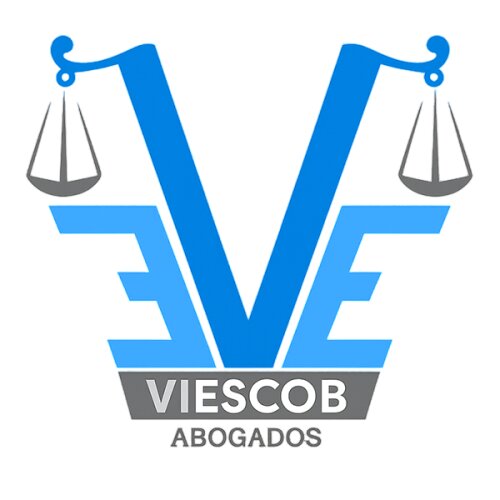Best Child Support Lawyers in Providencia
Share your needs with us, get contacted by law firms.
Free. Takes 2 min.
Free Guide to Hiring a Family Lawyer
List of the best lawyers in Providencia, Chile
About Child Support Law in Providencia, Chile
Child support, known as “pensión de alimentos” in Chile, is a legal obligation requiring parents to contribute financially to the upbringing and welfare of their children. In Providencia, part of Santiago’s Metropolitan Region, these laws ensure that children’s fundamental needs such as housing, education, clothing, and health are met. The legal framework is designed to protect minors and secure their well-being regardless of their parents’ relationship status. Enforcement and modifications of child support are handled by the local Family Courts, which follow both national and local guidelines.
Why You May Need a Lawyer
Navigating child support issues can be complex and emotionally charged. People in Providencia often seek legal counsel for several reasons. You may need a lawyer if you are unsure about your rights or obligations regarding child support, facing disputes over the calculation or payment of support, seeking to modify an existing support order, or if the other parent is not fulfilling their financial responsibilities. Legal assistance is also crucial when there are questions over paternity or in cases that involve cross-border issues. A lawyer can provide guidance, represent you in court, and help secure the best interests of your child.
Local Laws Overview
In Providencia, child support is governed by Chilean national law, specifically the Civil Code and the Family Court Law. The amount of child support is determined based on the needs of the child and the financial capacity of the obligated parent. Both parents have a mutual obligation to support their children until the age of 21, or 28 if the child continues with formal education.
Key local aspects include:
- The Family Court (Juzgado de Familia) has exclusive jurisdiction over child support matters.
- Support claims can be filed by the custodial parent or legal guardian.
- Failure to pay child support can result in legal sanctions, including wage garnishments or even imprisonment.
- Modifications to support orders must be approved by the Family Court, which will review changes in circumstances for either parent or the child.
- Alternative dispute resolution is encouraged to reach mutually acceptable arrangements before resorting to litigation.
Frequently Asked Questions
What is child support (“pensión de alimentos”) in Providencia, Chile?
It is a legal obligation requiring one or both parents to provide financial contributions for their child's basic needs, managed by the local Family Court.
Who can request child support?
Child support can be requested by the custodial parent, the legal guardian, or, in certain cases, the child directly if they are of legal age.
Until what age is child support required?
Support is mandatory until the child turns 21, or up to 28 if they are in higher education or unable to financially support themselves due to disability.
How is the amount of child support calculated?
The Family Court considers the needs of the child and the financial abilities of the parent obligated to pay. There are legal guidelines but each case is evaluated individually.
What happens if a parent does not pay child support?
Failure to pay can lead to enforcement measures such as wage garnishments, suspension of a driver’s license, or even jail time for persistent offenders.
Can the child support amount be changed?
Yes, either parent can request a modification if there is a significant change in circumstances, such as loss of employment, increased expenses, or changes in the needs of the child.
Do step-parents or grandparents have any child support obligations?
In specific situations, the law can extend support obligations to other relatives, particularly if parents are unable to provide. This is determined on a case-by-case basis.
Is mediation required before going to court?
Mediation is often encouraged to help parents reach an agreement without court intervention, but if it fails, the court will decide on the support matter.
Can non-citizens or foreigners claim or be obligated to pay child support in Providencia?
Yes, child support laws apply regardless of nationality. Both Chileans and foreigners residing in Providencia are subject to the same legal requirements.
How does a paternity dispute affect child support?
If paternity is disputed, the court can order DNA testing. Obligation to pay child support is established once legal parenthood is confirmed.
Additional Resources
If you need assistance or more information about child support in Providencia, consider the following resources:
- Juzgado de Familia de Providencia: The local Family Court that handles all child support cases in the commune.
- Corporación de Asistencia Judicial (CAJ): Provides free legal advice and representation to those who qualify.
- Ministerio de Justicia y Derechos Humanos: Offers detailed guides, forms, and referrals regarding family law matters.
- Mediación Familiar: Several governmental and non-profit organizations provide mediation services to resolve disputes out of court.
Next Steps
If you are facing a child support issue in Providencia, consider taking the following steps:
- Gather all relevant documents such as birth certificates, receipts for child expenses, payslips, and any previous court orders.
- Contact a local family lawyer or reach out to the Corporación de Asistencia Judicial if you need free legal advice.
- If appropriate, participate in mediation to try to reach an agreement with the other parent.
- If no agreement is possible, file a formal request with the Juzgado de Familia de Providencia to initiate or modify child support.
- If you receive a summons or notification regarding child support, respond promptly and consider consulting a lawyer to protect your interests and those of your child.
Every case is unique, so seeking qualified legal assistance is highly recommended to ensure the best outcome for you and your child. Early action and informed decisions can help you navigate the child support process more effectively.
Lawzana helps you find the best lawyers and law firms in Providencia through a curated and pre-screened list of qualified legal professionals. Our platform offers rankings and detailed profiles of attorneys and law firms, allowing you to compare based on practice areas, including Child Support, experience, and client feedback.
Each profile includes a description of the firm's areas of practice, client reviews, team members and partners, year of establishment, spoken languages, office locations, contact information, social media presence, and any published articles or resources. Most firms on our platform speak English and are experienced in both local and international legal matters.
Get a quote from top-rated law firms in Providencia, Chile — quickly, securely, and without unnecessary hassle.
Disclaimer:
The information provided on this page is for general informational purposes only and does not constitute legal advice. While we strive to ensure the accuracy and relevance of the content, legal information may change over time, and interpretations of the law can vary. You should always consult with a qualified legal professional for advice specific to your situation.
We disclaim all liability for actions taken or not taken based on the content of this page. If you believe any information is incorrect or outdated, please contact us, and we will review and update it where appropriate.











